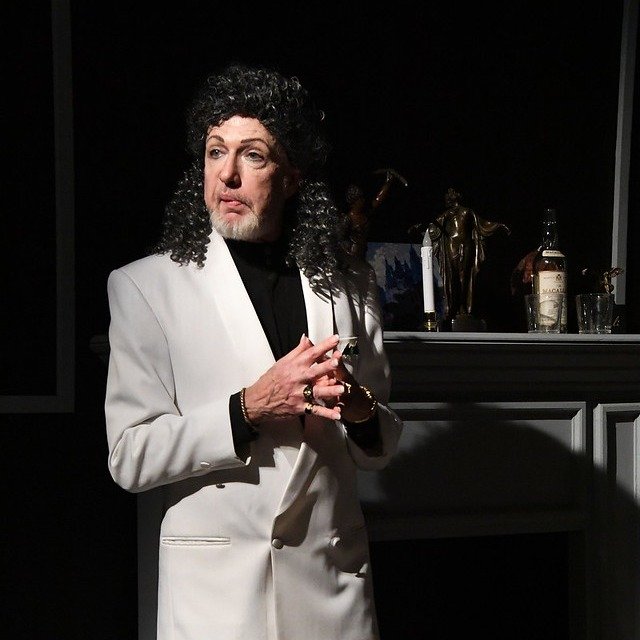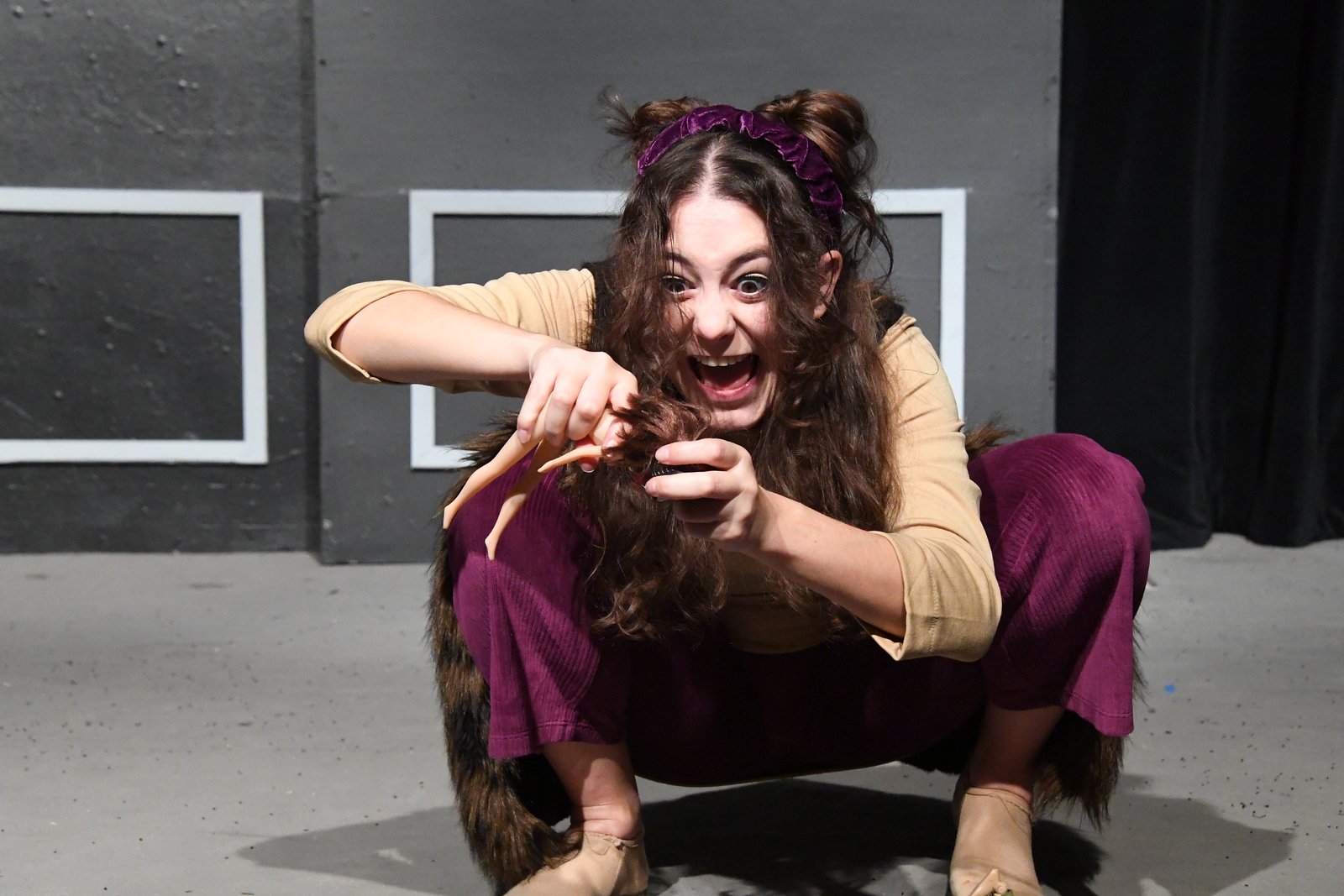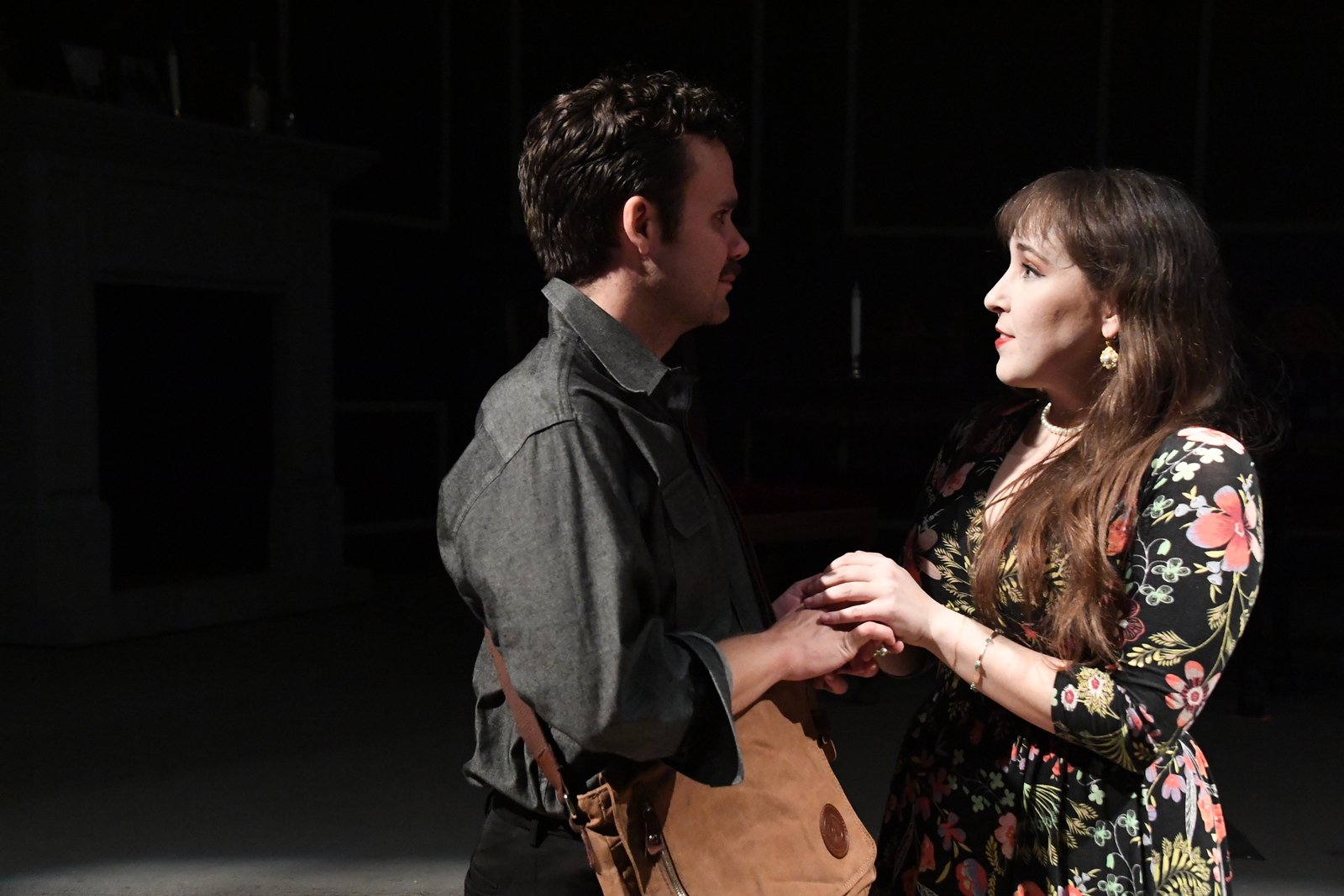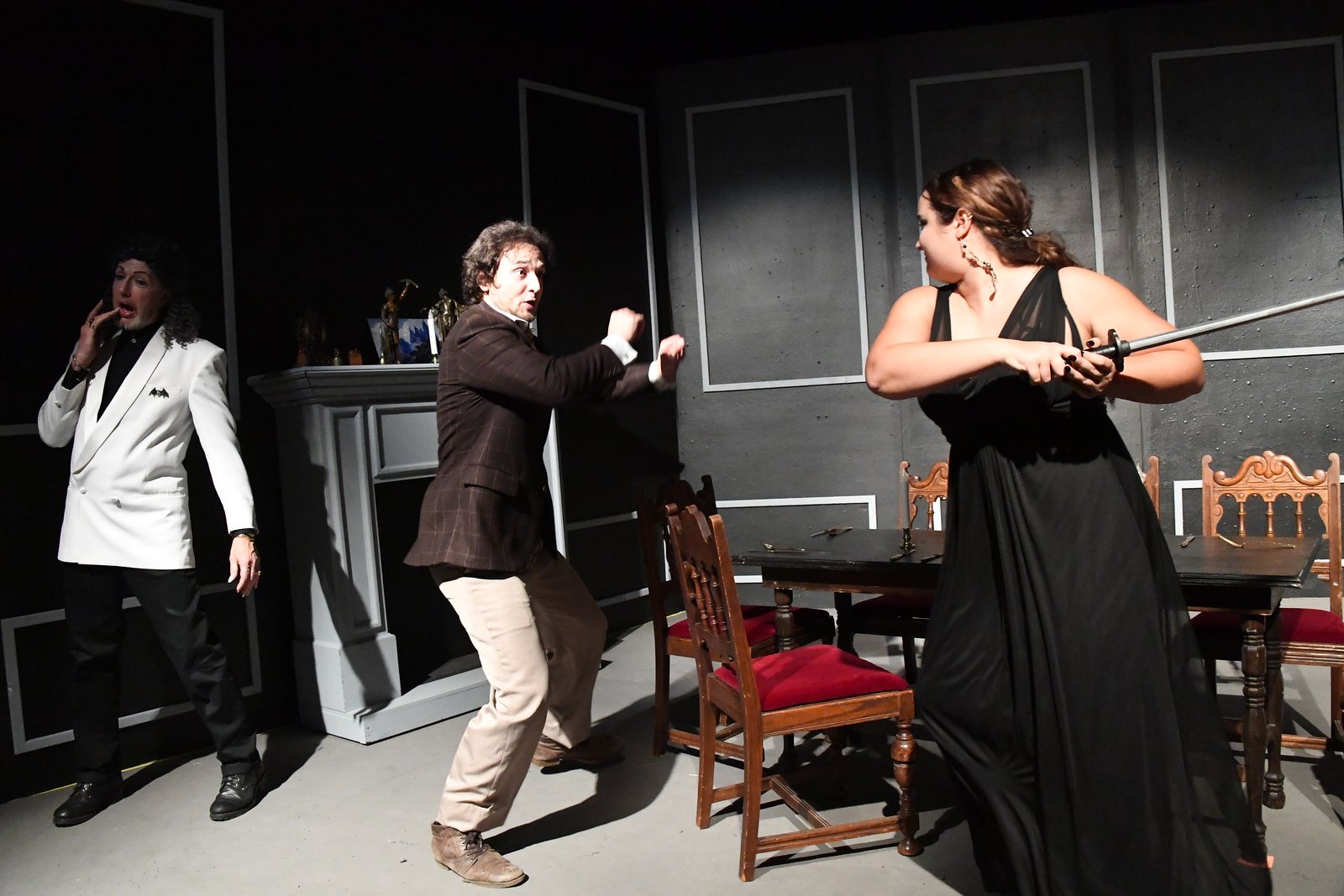Children of the Night @ Prost Stage Productions
—Jill Sweeney
In promoting Children of the Night, its new original piece, Prost Stage Productions (in a co-production with Mainstage Irving) describes the play as the story of “a charming vampiric family where each daughter represents a stereotypical vampire in media: the romantic, the vixen, and the feral monster.” But as the show progressed, I had a slightly different take—this sucker (no offense intended) feels like a sort of supernatural riff on a rom-com, with each vampire daughter embodying a familiar character trope. And, all things considered, it works pretty well, cleverly blending comedy and horror to tell what is a sweet(ish) family tale, with just enough bite.
Co-written by Prost’s founders Joel Frapart and George Morris, whose past collaborations indicate a preoccupation with horror, comedy, pop culture, and “what if” scenarios, Children of the Night owes a lot to Stoker’s Dracula in its initial scenes, but rather than focusing on weary vampire patriarch Count Grimlocke (Byron Holder, who’s played the role in previous productions), the piece focuses more attention on his three “daughters”--women Grimlocke rescued from various nasty ends over the centuries by “siring” them. Essentially, Grimlocke is ready to throw in the towel as the head of his little vampire family, and is looking to relocate them to more lively environs before his “retirement.” (Act I takes place somewhere in Eastern Europe in the 1920s, while the next two acts see the vampires relocating to London in the ‘60s and North Carolina in the ‘70s). But before he can flee back to his quiet castle, Grimlocke is determined to see his girls coupled up and under the “protection” of a good man, their own feelings on the subject notwithstanding.
The eldest, Lilith (Cheyenne Haynes), is essentially feral, and Haynes keeps her physicality hunched and animalistic, crouching and snarling at everyone who crosses her path. In her quieter moments, however, she revels in Lilith’s more childlike qualities, whether at a macabre tea party with her dolls, or hauling around the bodies of her victims; blood and guts notwithstanding, we’ve got ourselves a manic pixie dream vampire, especially after her meet…cute? with her dream fella in Act III (keeping it vague to avoid spoilers). Middle daughter Madeline (a dry, amusing Samantha Calatozzo Cobb) is all business, no romance—if “business” is keeping a rotating stable of enthralled men to do her bidding. She’ll meet her match by play’s end, too, in one of the play’s more satisfying twists. And finally there’s youngest daughter Helena (Samantha Johnson), a dreamy, romantic type, always flitting from man to man (none of whom seem to come out of the relationship unscathed). Her story, too, comes to a satisfyingly unexpected conclusion, as it seems she and her father may have more in common than they thought. Under director Lindsey Humphries, there’s a comfortable chemistry among the three women, and the actresses do a nice job of creating different dynamics with Holder’s exasperated paterfamilias.
Holder gives a surprisingly subtle performance as Grimlocke, underplaying his vampiric nature in all but a few key scenes; kudos, though, for perfecting the required elegant, floaty “vampire hands.” I also enjoyed the choice to keep his deeply anachronistic hairstyle consistent even as the decades flew by and his wardrobe, at least, underwent a few spruces. The other two standouts of the evening were Jake Lawrence Geary, managing multiple accents as he shifted from proper London real estate agent to working class hippy musician to good ol’ Southern boy in the play’s final act; and Salvador Elias, portraying in various eras a fiercely dedicated vampire hunter and, later, one a little less committed to his cause.
The set (credited to Luis Salazar) is fairly basic but effective, and director Humphries’ does a nice job of utilizing the entirety of the space to keep the action engaging and fluid. The outdoor location, however, did pose a few audio problems: an early recorded diary entry from Geary’s character was essentially inaudible from the third row, and actors struggled at times to overcome the ambient noise. There was some nice attention to period detail in the show’s costuming; I enjoyed Lilith’s fur-trimmed vest and flower child dress from the ‘60s, Helena’s fringed ‘20s cardigan, and Madeline’s slinky ‘70s evening dress.
The script could use a little dramaturgical tightening (the second act in particular drags), and two intermissions seems excessive. But overall, it’s a credible effort from a new company, with an ending I didn’t see coming—one that came together with a satisfying narrative “click”. I’ll be keeping my eye on Prost Stage Productions going forward.
WHEN: Through October 29th
WHERE: 222 E Irving Blvd, Irving TX 75060
WEB: Visit Prost Stage Production’s Facebook page for more info and ticket links, or visit https://mainstageirving.com/mainstage-222/



